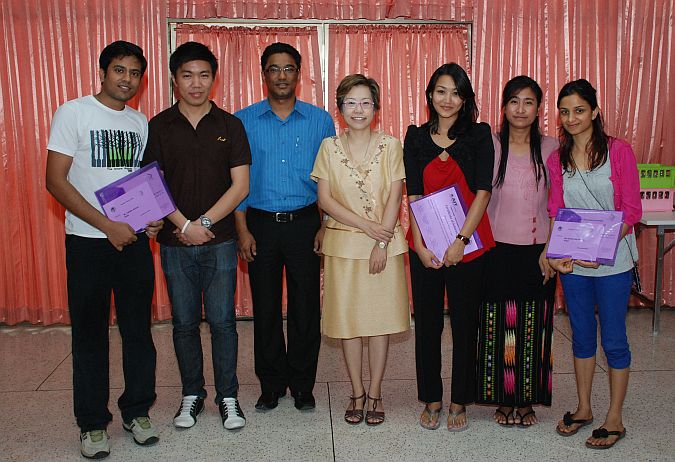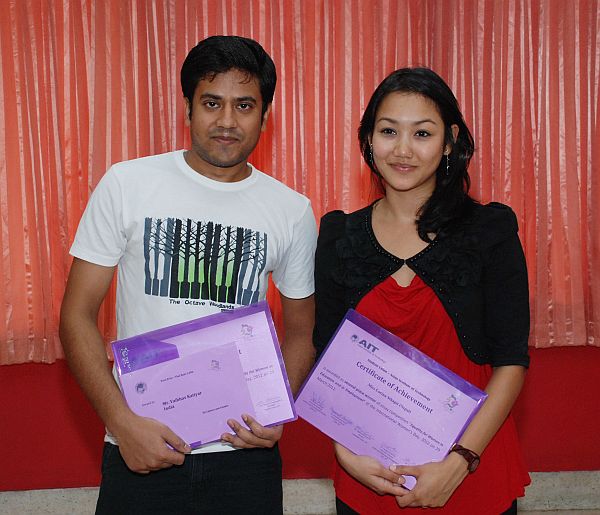The competition was launched on March 7, and seventeen submissions
were received by the organizers, Student Union President Mr. Bhawat
Traipattanakul, said. The judges included Dr. Kyoko Kusakabe, Associate
Professor, GDS, SERD; Dr. Donyaprueth Krairit, Associate Professor,
SOM; Mr. Matthew Laszewski, Director, Language Center; Dr. Sangam
Shrestha, Assistant Professor, WEM, SET; and Mr. Bhawat
Traipattanakul.
Indian Mr. Vaibhav Katiyar, a Master’s candidate of the Remote Sensing
and GIS field of study, SET, was awarded first prize by the judges. Ms.
Lorina Sthapit, who hails from Nepal and is a Master’s student of
Gender and Development Studies, was runner-up. In her paper, she quoted
UN Secretary-General Ban Ki-moon, who said: “Where women are educated
and empowered, economies are productive and strong. Where women are
fully represented, societies are more peaceful and stable.”
Capturing third place was Mr. Hitesh Nidhi Sharma, a Nepali-national
who is a Master’s student of the Computer Science and Information
Management field of study, SET. Unable to attend, Ms. Bibhuti Sharma
accepted the certificate of his behalf.
Dr. Donyaprueth Krairit, Associate Professor, SOM, who is also the
chair of the AIT Gender Equality Committee, congratulated the winners
and all of the participants of the essay competition.
“This is a small ceremony for a very big cause,” Dr. Donyaprueth said.
“We are very proud that for the first time the winning entry is male.
This shows that we moving towards equality.” Dr. Donyaprueth urged all
the contestants to think of the experience of writing about women’s
equality as just the first step in their life-long fight for attaining
equal rights for women.
Dr. Sangam Shrestha echoed his colleague, saying he was impressed that
almost 50 per cent of submissions were from males. He added that the
papers were assessed for their originality; quality of the analysis;
personal vision; relevance and responsiveness to girls and women's
development challenges; and the quality of language used.
The whole activity was designed for students to assess how we can
improve women's capacities, create change, and honor women's
achievements, SU Culture and Gender representative Ms. Ni Ni
said.


